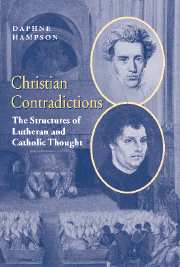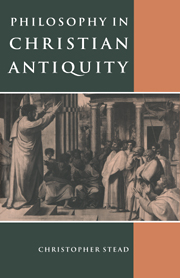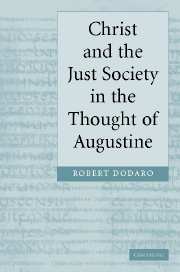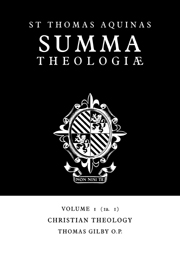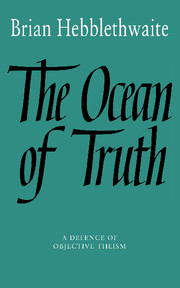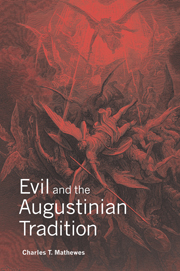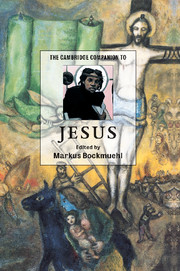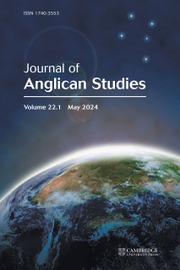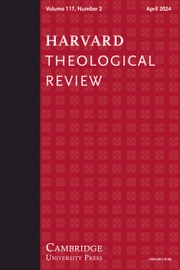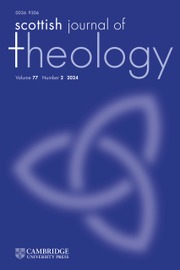Christian Contradictions
The Structures of Lutheran and Catholic Thought
- Author: Daphne Hampson, University of St Andrews, Scotland
- Date Published: January 2005
- availability: This ISBN is for an eBook version which is distributed on our behalf by a third party.
- format: Adobe eBook Reader
- isbn: 9780511037528
Find out more about Cambridge eBooks
Adobe eBook Reader
Other available formats:
Paperback, Hardback
Looking for an inspection copy?
Please email [email protected] to enquire about an inspection copy of this book
-
Catholic thought and Lutheran thought are differently structured, embodying divergent conceptions of self and God. Failing to grasp the Lutheran paradigm, Catholics have wrenched Luther into an inappropriate framework. Roman/Lutheran ecumenism, culminating in the 'Joint Declaration' of 1999, attempts to reconcile incompatible systems, based on different philosophical presuppositions. Drawing on a wealth of material, both Continental and Anglo-Saxon, the author thinks through these structural questions within a historical context. But how - within a religion of revelation - can God be conceptualised as both foundational to the self and yet also as an 'other' with whom the self inter-relates? Kierkegaard is shown in a complex model to hold together strengths which historically have been exemplified by the two traditions. This is an important work in systematic theology which considers questions quite fundamental to Western religion. It should be of interest to theologians of all backgrounds and also to church historians.
Read more- First book on Catholic/Lutheran interface subsequent to the 'Joint Declaration on Justification' in 1999
- Interesting discussion of their attempted synthesis in the work of Soren Kierkegaard
- A thorough historical and theological exploration of the incompatibility of Lutheranism and Catholicism
Reviews & endorsements
'In this well researched and scholarly work, Daphne Hampson argues that Catholicism and Lutheranism are totally incompatible. It is a remarkably generous exposition of both forms of Christianity: not pseudo-neutral but wonderfully sympathetic all round. This is an important book - a radical challenge to decades of ecumenical rapprochement.' Fergus Kerr
See more reviews'This is a fascinating, original, readable and challenging book. Ecumenists and students of the Reformation should read it, but so should other serious Christians. It is rare for a theological book to be so spiced with passion … it matters for [Hampson] what people think and what they do with their beliefs.' Mark D. Chapman, The Journal of Theological Studies
'Daphne Hampson traces one of the great fissures in western Christian thought, rejecting all attempts to paper it over, insisting that the most fundamental questions of understanding the self in relation to God are at stake in it. Here is a post-Christian theologian sympathetically engaging with the Lutheran and Catholic traditions, while also defining her own position over against them. This is very interesting reading, and an important book not least because it shows how significant the issues it discusses remain.' Richard Bauckham
'Daphne Hampson shows how different 'structures of thought' affect how Lutheran and Catholic theologies use key theological terms. By analyzing a wide range of materials she argues that these structures become deterrents to ecumenical consensus. In the course of her analysis she examines diverse authors in the Lutheran and Catholic traditions from the sixteenth to the twentieth centuries. Hampson's own position outside Christianity does not impair her theological acumen and empathy, but does provide a critical edge to some of her important judgments.' James M. Gustafson, Emeritus Professor, Emory University
'Particular strengths are the clarity of her exposition, the making available of important material not often covered outside of Roman Catholic contexts (e.g. sixteenth-century material) and her willingness not to step back from the subject-matter of her book.' Clive Marsh, Modern Believing
'Daphne Hampson provides a clear account of the divergent structuring of thought about man in relation to God that emerged at the Reformation, and of the failure of the prevailing Catholic tradition to understand Luther's own starting point … makes for a compelling read.' Reformation
'In this book Daphne Hampson deploys her formidable intellectual skills in an analysis of the broad divisions between Catholic and Lutheran forms of life and thought … demonstrating how deeply this disagreement cuts and how much getting to the bottom of it matters.' J. A. DiNoia, editor of The Thomist
'This book is timely.' The Expository Times
'… an interesting and challenging book …' Pacifica
Customer reviews
Not yet reviewed
Be the first to review
Review was not posted due to profanity
×Product details
- Date Published: January 2005
- format: Adobe eBook Reader
- isbn: 9780511037528
- contains: 3 b/w illus.
- availability: This ISBN is for an eBook version which is distributed on our behalf by a third party.
Table of Contents
Preface
Note on the text
Introduction
1. Luther's revolution
2. The Catholic alternative
3. Catholic incomprehension
4. Nygren's detractors
5. Ecumenical encounter
6. Dialogue with Bultmann
7. Kierkegaard's odyssey
Epilogue
Bibliography
Index of names
Index of subjects.
Sorry, this resource is locked
Please register or sign in to request access. If you are having problems accessing these resources please email [email protected]
Register Sign in» Proceed
You are now leaving the Cambridge University Press website. Your eBook purchase and download will be completed by our partner www.ebooks.com. Please see the permission section of the www.ebooks.com catalogue page for details of the print & copy limits on our eBooks.
Continue ×Are you sure you want to delete your account?
This cannot be undone.
Thank you for your feedback which will help us improve our service.
If you requested a response, we will make sure to get back to you shortly.
×
